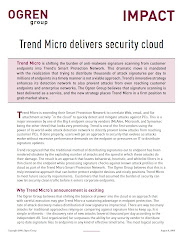The latest issue of NetworkWorld dings VMware for not supporting Microsoft and Citrix hypervisors with their vSphere release, claiming VMware’s strategy promotes “vendor lock-in”. Well, duh. Who said supporting other hypervisors was a market requirement for VMware?
Enterprises typically buy technology products because they offer the best features match for the desired functionality, offer the best performance for the business, or offer the best economics between purchase price and operating costs. IT has made the decision to make VMware the market leader for virtualized datacenters because of functionality and performance. Other factors, such as vendor relationship, product roadmap, open support for competitors are usually relegated to tie-breakers. IT strived to control the datacenter – I have not talked with too many IT folks that strive for a mish-mash of hypervisors for corporate applications in the virtual datacenter.
In terms of competition, Microsoft will successfully compete on price, and will be penetrating the market via small and mid-tier organizations. They always do, and they always do it well. I have spoken with companies that will switch to Hyper-V as soon as it is enterprise-ready. Citrix competes on performance, especially when it comes to application delivery to the desktop. Yes, Xen has open source roots, but customers buy predominantly because Citrix Xen delivers a local experience to virtual desktop and can save huge operating costs for endpoint management.
I do not often see vendor lock-in as an overriding issue in emerging markets, and I certainly don’t see it here for VMware’s vSphere. VMware's mission is to become the de facto standard for virtualization in the data center, which will drag an eco-system with financial benefits for the installed base. I’m not sure how vendor lock-in is even a major customer concern at this early stage of the market. Am I missing something here?
Monday, May 4, 2009
Subscribe to:
Post Comments (Atom)








No comments:
Post a Comment